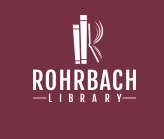Home > Dracula Studies > 7 > No. 1 (2005)
Journal of Dracula Studies
DOI
10.70013/58k4l5m6
Abstract
Before British authors began writing vampire literature, culminating in 1897 with Bram Stoker’s Dracula, eighteenth-century German poets, most significantly Heinrich August Ossenfelder, Gottfried August Bürger, and Johann Wolfgang von Goethe, had begun to adapt the curious phenomenon of vampirism from Central Europe for the creative literature they were producing in the enlightened West. Possibly the most striking observation about the origins of the vampire figure in German poetry is that the German poets seem to have drawn more on Central European than German folklore. The reason for this is that the literary vampire was introduced into eighteenth-century German ballad poetry in response to news about vampire superstition that reached the West as a result of the conflicts between the Habsburg Empire and the Turks over territories in Central Europe during this time.
Recommended Citation
Crawford, Heidi
(2005)
"The Cultural-Historical Origins of the Literary Vampire in Germany,"
Journal of Dracula Studies: Vol. 7:
No.
1, Article 1.
DOI: 10.70013/58k4l5m6
Available at:
https://research.library.kutztown.edu/dracula-studies/vol7/iss1/1
Creative Commons License

This work is licensed under a Creative Commons Attribution-NonCommercial-No Derivative Works 4.0 International License.
Included in
English Language and Literature Commons, Feminist, Gender, and Sexuality Studies Commons, Film and Media Studies Commons


